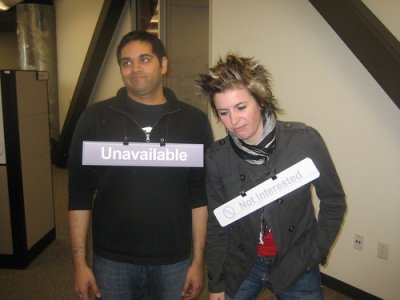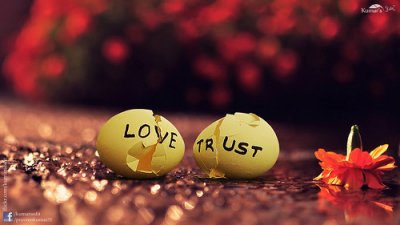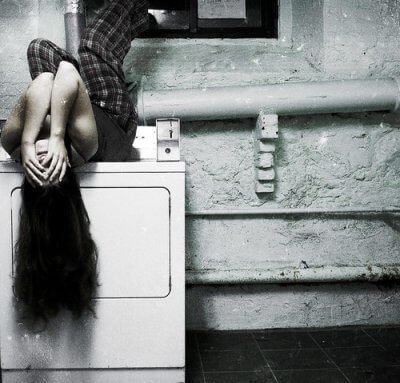Always Chasing the Emotionally Unavailable? Here’s Why

By: Bill Scott
by Andrea M. Darcy
You tell yourself it’s just the way modern dating is, that people are selfish. It’s them, anyway. But if you are constantly chasing after emotionally unavailable partners? Then it is you. And it’s time to dig deep into why.
Time to stop blaming low self-esteem?
Low self-esteem seems the catch-all excuse these days. If only you learned to like yourself, then, poof! Your life would be perfect!
Except that there really isn’t a person out there who doesn’t sometime doubt him or herself. In fact self-doubting is healthy, and keeps us from being a narcissist. And low self-esteem doesn’t come out of nowhere.
Low self-worth is more often than not another symptom, not a root cause. There are other, deeper things at work.
[In a relationship that is dragging you down, and just don’t know who you are anymore? Reach out to an online therapist today to talk to someone who really understands.]
What do you actually believe love is?
A good place to start looking when it comes to figuring out your attraction to the emotionally unavailable? Examine your core beliefs about love.
Core beliefs, also referred to as ‘limiting beliefs’, are the assumptions we make about the way the world works when we are children. We then tend to mistake these assumptions for hard facts and live our lives accordingly.

By: Kumar’s Edit
Let’s look at an example. Let’s say you grow up with a father who is always away on business trips. When he is home, he and your mother have big, violent arguments.
Your childlike mind decides that love is difficult, and even that love is dangerous.
Is it any wonder you then grow up into an adult who feels uncomfortable around nice people who want to date you, but ‘in love’ with people who are unavailable or unkind?
The power of attachment styles
Sometimes it’s not just what you learned from your parents, but actually how you were parented at all.
Attachment theory states that in order to grow up into secure adults who can have healthy relationships? We need a primary caregiver as a child who we can trust to protect us and to be there for us, loving us no matter what.
If instead you have a parent who is wishy-washy with their love? Or who only gives you love when you are a ‘good’ boy or girl? Then you grow up to have anxious attachment, feeling you have to earn love and adjust yourself accordingly to deserve it.

By: Alex Bellink
And instead of being attracted to healthy sorts? Those with anxious attachment tend to go for those with ‘avoidant attachment’ . These are people who learned growing up that the easiest way to cope was to avoid intimacy, a.k.a…..be emotionally unavailable.
What if YOU are the one afraid of intimacy?
Here’s the thing we don’t admit when we moan about always going for emotionally available men, or cold and aloof women.
That if we are always choosing people who don’t allow intimacy? It is often as deep down we don’t want intimacy. It even secretly terrifies us, or we are afraid we’d lose ourselves entirely if we let ourselves be loved.
Or is it just codependency?
To loop back to low self-esteem just a little here – codependency is often a factor if we are hooked on unavailable partners.
If the other person is unavailable as they are damaged – they had a terrible childhood, they are an addict – we can be hooked on ‘fixing’ them. And at the root of codependency is a problem with self-worth that drives us to find it through other people, instead of our own inner resources.
Of course codependency doesn’t grow just from low self-esteem, but from having a codependent relationship with a parent, or from experiencing childhood trauma that decimated your sense of self.
Traumatic bonding
Which brings us to perhaps the darkest reason for staying in a relationship with someone unavailable. Traumatic bonding means struggle to leave an unhealthy relationship because we are addicted to the tiny moments we are treated well. It is common in those who experienced abuse as a child to end up an adult bonded to another abuser.
If the person you are with is not just emotionally unavailable but also critical, mean, or in any way harms you physically or sexually? Then please do learn about trauma bonding and seek help.
How do I stop chasing emotionally unavailable people?
As you can now see, it’s not just a question of ‘raising your self-esteem’. A need to chase after people who can’t actually love tends to stem from unresolved childhood issues, or even trauma.
Self-help is a good start, and there are wonderful books out there to help with things like codependency and attachment issues.
But in most cases, if we struggle to recognise and welcome healthy relationships? We need proper support. This is particularly true if we experienced any trauma or abuse growing up. A counsellor or psychotherapist creates a safe, non-judgemental space to process unresolved emotions and experiences. You can finally learn and practise the ways of relating that mean you finally find the love you long for.
Harley Therapy connects you with top London counsellors and psychotherapists who can help you find healthy love. Not in London or the UK? Our booking platform provides UK-wide therapists or online therapy you can use from anywhere.
Still have a question about emotionally unavailable partners and why you choose them? Or want to share a personal experience? Post in the public comment box below. Comments are monitored to protect our readers.
 Andrea M. Darcy is a mental health and wellbeing expert, who has done some training in person-centred counselling and coaching. She often writes about trauma, relationships, and ADHD, and advises people on how to plan their therapy journey. Find her on Instagram @am_darcy
Andrea M. Darcy is a mental health and wellbeing expert, who has done some training in person-centred counselling and coaching. She often writes about trauma, relationships, and ADHD, and advises people on how to plan their therapy journey. Find her on Instagram @am_darcy





I’m going to be 34 next week and I am still chasing after emotionally unavailable people. I’ve been in therapy for about 8 years on and off. I’m not sure how I can get the help that I need.